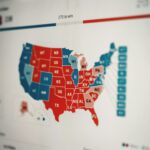Weekly Writers Round-Up: Healthcare Costs, Utah’s Tax Reform, and the Local Impact of Iranian Tensions
Each week, we’ll be featuring opinion pieces from the alumni and current participants of AF’s Writing Fellows Program. A few highlights from the past week are below. Do you dream of having bylines like these? See here for details on the program!
No, healthcare costs are not a ‘poll tax’ by Elise Amez-Droz (Summer 2019) in the Washington Examiner
Yes, we pay a lot for healthcare. That doesn’t make healthcare spending a tax, let alone a poll tax.
Yet that’s the argument put forward by two world-renowned economists in the Washington Post. They’re not alone in their thinking: University of California, Berkeley economists Emmanuel Saez and Gabriel Zucman, the architect of Sen. Elizabeth Warren’s wealth tax proposal, have both made the same nonsense claim that healthcare costs are a “poll tax” in the past…
Utah tax reform a step in the right direction by Josh T. Smith (Summer 2015) in the Salt Lake Tribune
New Years in Utah brings a new tax system for the state. Overall, Utahns will see a tax cut along with new, targeted programs for those in need. Though, tax reform skeptics have begun gathering signatures for two separate repeal efforts in order to undo the changes.
Those critical of the tax reform should be applauded for their desire to help those in need and the best way to ensure that is by not making the perfect the enemy of the good. While not flawless, Utah’s tax reform is a great start to modernizing the tax code, lowering rates, and offering better services to those who need it most…
US-Iranian tensions hitting close to home by Jacob Bruggeman (Summer 2017) in the Cincinnati Enquirer
Graduating with an advanced degree in political science is the harbinger of a hidden penalty: family, friends, and peers expect you to have readymade comments on contemporary events. After President Trump announced on Jan. 3 that Maj. Gen. Qassem Soleimani was eliminated by airstrike “to stop a war,” countless family and friends in Ohio called and texted to ask, “What’s next?” My honest answer: I don’t know.
Over the weekend, colleagues abroad at the University of Cambridge sent me emails asking much the same. Following Iran’s retaliatory (and thankfully non-fatal) missile strikes on Iraqi bases housing U.S. troops – a fulfillment of the vows made by Ayatollah Ali Khamenei, Iran’s supreme leader, to exact “forceful revenge” for the U.S. airstrike – and Trump’s speech on Wednesday, questions about our country’s course of action are as salient as ever. Indeed, Iran remains a legitimate cyber and terror threat…




